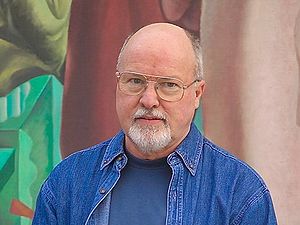 |
| [Pixabay] |
If you have or choose to read previous essays and speculations published here, you will come to recognize that my views on religion and spirituality are nuanced and fluid. For example, I find the declaring belief or lack of belief in God to be an impediment rather than a useful clarification (at least for myself). And while I rarely use the word much in my personal life, I often use "God" when writing about religion and spirituality as a shorthand for the deeper, grander mysteries of life and existence that transcend a human capacity for (full) comprehension or control.
I eschew adjectives such as "personal" and "impersonal" when it comes to discussions of divinity, with the use of the word "God" revealing an orientation toward understanding and experiencing existence. Neither strictly as an ideal nor as a specific object, but a larger unity underlying and pervading all we are, all we know, all we can be. Again, at least when I'm writing about this stuff or pushed to ask what kind of God might make sense to me. There isn't much need to worry about such depictions or definitions of God for my daily living. In practical terms I tend to leave "God" unfettered by words and overly specific expectations.
So if you're trying to figure out which category my views belong in when figuring out what angle I'm coming from in relation to the topic at hand, it's one of those really open approaches that drives some people with more fixed notions of what God must (not) or can(not) be to distraction. Yet I bring this up for more than honest disclosure about my own take on the idea of something like the concept of God. Because how one thinks about God shapes how one thinks about the value and purpose of formal religion in state-level societies as well as the larger global community.
If I had some need to worry about it, I suppose it would make sense that "God" (used here to represent the central concern or focus of religious notions of spiritual depth and personal transcendence) would be omnipresent yet not limited to any particular place or time. One of those weird sounding ideas theologians and philosophers talk about, this is sometimes rendered as being immanent (it's here with us) and transcendent (it's far beyond us) at the same time. There are ways of discussing how this works, including a kind of split-level monism in which immanence and transcendence reflect differences in perception and thus represent different modes of awareness, but we aren't getting into anything so heavy here. Not today.
But why does it matter where God is "located"? And what does it have to do with how those who identify as Christian behave and how they are perceived?

